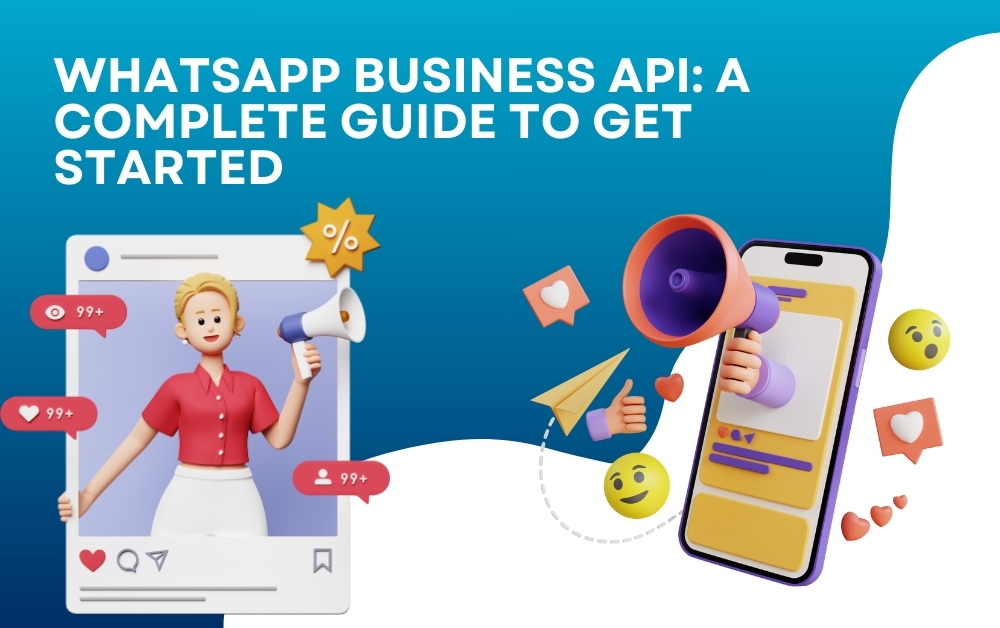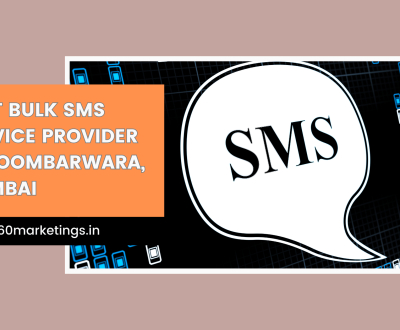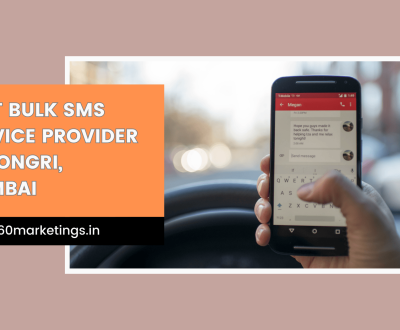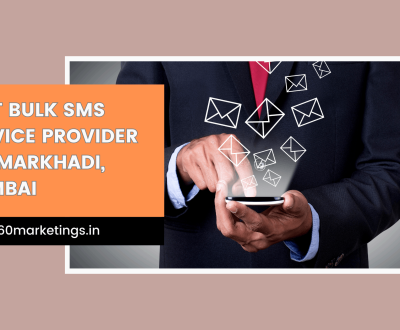In today’s digital age, communication has evolved rapidly, and businesses are constantly seeking effective ways to connect with their customers. WhatsApp, a platform with over 2 billion users worldwide, has emerged as a powerful tool for businesses to engage with their audience. The WhatsApp Business API is a game-changer for businesses looking to streamline communication, provide customer support, and drive sales. In this comprehensive guide, we will walk you through everything you need to know about the WhatsApp Business API, how to get started, and why it’s an essential tool for businesses of all sizes.

Introduction to WhatsApp Business API
The WhatsApp Business API is designed for medium to large businesses that need to communicate with their customers at scale. Unlike the regular WhatsApp Business app, which is tailored for small businesses, the API allows for automation, integration, and massive scaling of communication efforts. Whether you are looking to send notifications, provide customer support, or even conduct marketing campaigns, the WhatsApp Business API offers a robust solution.
With the growing demand for instant communication, many businesses are turning to bulk SMS services as a way to reach a larger audience. However, the WhatsApp Business API provides an even more dynamic and interactive platform. Companies like 360 Marketing, a leading bulk SMS service provider, have expanded their offerings to include WhatsApp Business API services, recognizing the need for businesses to leverage this tool in their communication strategy.
Key Features of WhatsApp Business API
- Automated Messaging: The API allows businesses to set up automated responses, ensuring that customers receive instant replies to their queries. This is crucial for maintaining customer satisfaction and managing large volumes of inquiries.
- Integration with CRM Systems: One of the most significant advantages of the WhatsApp Business API is its ability to integrate with CRM systems. This integration allows businesses to manage customer interactions seamlessly, keeping track of conversations and ensuring personalized communication.
- Rich Media Messaging: Unlike traditional SMS, the WhatsApp Business API supports rich media messaging. Businesses can send images, videos, documents, and even locations, making interactions more engaging and informative.
- Analytics and Reporting: The API provides detailed analytics and reporting features that allow businesses to track the performance of their communication strategies. This data-driven approach enables companies to refine their tactics and improve customer engagement.
Why WhatsApp Business API?
In an era where customers expect instant communication, businesses must adapt to meet these expectations. The WhatsApp Business API offers several advantages over traditional bulk SMS services:
- Global Reach: With over 2 billion users, WhatsApp provides a platform for businesses to reach customers globally, unlike traditional SMS, which may have limitations based on the network and country.
- Higher Engagement Rates: WhatsApp messages have significantly higher open and response rates compared to SMS. This makes it a more effective channel for customer engagement.
- Security: WhatsApp messages are encrypted end-to-end, providing a secure communication channel for businesses and customers alike.
Getting Started with WhatsApp Business API
Now that you understand the importance and features of the WhatsApp Business API, let’s dive into how you can get started.
Setting Up WhatsApp Business API
Setting up the WhatsApp Business API may seem daunting, but with the right guidance, it can be a straightforward process. Here’s a step-by-step guide to help you get started.
Choose a Business Solution Provider (BSP)
The first step in setting up the WhatsApp Business API is to choose a Business Solution Provider (BSP). A BSP is a third-party company that helps businesses integrate the WhatsApp API into their existing systems. 360 Marketing, a top bulk SMS service provider in India, also offers BSP services, ensuring a seamless integration process.
Create a WhatsApp Business Account
Once you have selected a BSP, the next step is to create a WhatsApp Business account. This involves providing your business details, including your name, address, and phone number. It’s important to note that the phone number you use for the WhatsApp Business API cannot be the same as the one you use for your personal WhatsApp account.
Verify Your Business
WhatsApp requires businesses to verify their identity before they can start using the API. This is done through a verification process that typically involves providing documents such as a business registration certificate. Verification helps ensure that only legitimate businesses can use the API.
Set Up Messaging Templates
With the WhatsApp Business API, businesses can use pre-approved messaging templates to communicate with customers. These templates are used for sending notifications and other non-transactional messages. It’s essential to craft these templates carefully, as WhatsApp has strict guidelines on what can be sent.
Integrate the API with Your Systems
The final step is to integrate the WhatsApp Business API with your existing systems. This could be your CRM, customer support software, or even your bulk SMS service platform. Integration ensures that all customer interactions are managed from a central location, making it easier to track conversations and provide personalized responses.
Start Communicating
Once everything is set up, you can start using the WhatsApp Business API to communicate with your customers. Whether you’re sending out promotional messages, providing customer support, or sending notifications, the API provides a powerful platform for all your communication needs.
Using WhatsApp Business API for Marketing
Marketing is one of the most effective ways to utilize the WhatsApp Business API. With its high engagement rates, WhatsApp provides a unique opportunity for businesses to connect with their customers on a more personal level.
Customer Segmentation
One of the most effective ways to use the WhatsApp Business API for marketing is through customer segmentation. By segmenting your audience based on their behavior, preferences, and purchase history, you can send targeted messages that resonate with each group. For example, if you’re a bulk SMS service provider in Delhi, you can segment your customers based on their location and send them offers specific to Delhi.
Promotional Campaigns
The WhatsApp Business API allows businesses to run promotional campaigns that can drive sales and increase brand awareness. Whether you’re offering a discount, launching a new product, or running a flash sale, WhatsApp provides a direct channel to your customers’ phones. Unlike email marketing, where messages can easily get lost in the inbox, WhatsApp messages are more likely to be seen and acted upon.
Personalized Messaging
Personalization is key to successful marketing, and the WhatsApp Business API makes it easy to send personalized messages to your customers. By integrating the API with your CRM, you can send messages that address customers by name and reference their past interactions with your business. This level of personalization helps build trust and strengthens customer relationships.
Feedback and Surveys
Gathering customer feedback is crucial for improving your products and services. With the WhatsApp Business API, you can send out surveys and collect feedback directly from your customers. This real-time feedback allows you to make data-driven decisions that can enhance the customer experience.
Retargeting
Retargeting is a powerful marketing strategy that involves reaching out to customers who have shown interest in your products or services but haven’t made a purchase. The WhatsApp Business API allows you to retarget these customers by sending them personalized messages, reminders, or special offers. For example, if you’re a bulk SMS service provider in Mumbai, you can retarget customers who have previously inquired about your services but haven’t signed up yet.
Use Rich Media
WhatsApp’s ability to send rich media messages is a game-changer for marketing. You can send images, videos, and even GIFs to capture your audience’s attention. For instance, if you’re promoting a new product, you can send a video demonstration or a carousel of images showcasing its features. This makes your marketing messages more engaging and memorable.
Broadcast Messaging
The WhatsApp Business API allows you to send broadcast messages to multiple recipients at once. This is particularly useful for businesses that need to send out mass notifications, such as a new product launch or a special promotion. Broadcast messaging is an efficient way to reach a large audience quickly and effectively.
Enhancing Customer Support with WhatsApp Business API
Customer support is another critical area where the WhatsApp Business API can make a significant impact. With its instant messaging capabilities, WhatsApp allows businesses to provide real-time support, resolve issues quickly, and improve overall customer satisfaction.
Instant Responses
Customers today expect quick responses to their queries, and the WhatsApp Business API delivers just that. By setting up automated responses, businesses can ensure that customers receive an immediate acknowledgment of their query, even if it’s outside business hours. This instant response helps manage customer expectations and reduces the likelihood of frustration.
Interactive Conversations
The WhatsApp Business API supports interactive messaging, allowing businesses to engage in two-way conversations with their customers. This is particularly useful for customer support, where agents can ask follow-up questions, provide detailed explanations, and resolve issues in real-time. Unlike email support, where responses can be delayed, WhatsApp enables a more dynamic and responsive support experience.
Multi-Agent Support
For larger businesses with multiple customer support agents, the WhatsApp Business API allows for multi-agent support. This means that several agents can manage conversations simultaneously, ensuring that no customer query goes unanswered. By integrating the API with your CRM, you can assign conversations to specific agents, track their progress, and ensure a seamless support experience.
Provide Self-Service Options
The WhatsApp Business API can be integrated with chatbots to provide customers with self-service options. For example, customers can use the chatbot to check their order status, find answers to frequently asked questions, or even make a reservation. This reduces the workload on your support team and empowers customers to find solutions on their own.
Escalate Issues
Not all customer issues can be resolved through automated responses or chatbots. The WhatsApp Business API allows businesses to escalate issues to a live agent when necessary. This ensures that complex problems are handled by a human, providing a more personalized support experience.
Collect Customer Feedback
After resolving an issue, it’s essential to gather feedback to understand how well your support team is performing. The WhatsApp Business API allows you to send a quick survey after each interaction, giving customers the opportunity to rate their experience. This feedback is invaluable for identifying areas of improvement and ensuring that your support team meets customer expectations.
Integration of WhatsApp Business API with Other Tools
The true power of the WhatsApp Business API lies in its ability to integrate with other tools and platforms that your business is already using. Whether it’s your CRM, marketing automation software, or customer support platform, integrating the API ensures a seamless flow of information and enhances your business processes.
CRM Integration
Integrating the WhatsApp Business API with your CRM system allows you to manage all customer interactions from a single platform. This integration ensures that all conversations are logged, making it easier to track customer interactions, follow up on leads, and provide personalized support. For businesses using a bulk SMS service provider in Chennai, this integration can also help streamline communication by consolidating all messaging channels into one platform.
Marketing Automation
Marketing automation tools are essential for running efficient and effective campaigns. By integrating the WhatsApp Business API with your marketing automation software, you can automate your WhatsApp marketing campaigns, track their performance, and optimize them for better results. This integration allows for a more data-driven approach to marketing, ensuring that your campaigns reach the right audience at the right time.
Customer Support Software
If your business uses customer support software, integrating it with the WhatsApp Business API is a no-brainer. This integration allows your support team to manage WhatsApp conversations alongside other support channels, such as email, chat, and phone. By consolidating all support channels into one platform, your team can provide faster and more efficient service.
E-commerce Platforms
For e-commerce businesses, integrating the WhatsApp Business API with your e-commerce platform can enhance the shopping experience for your customers. For example, you can send order confirmations, shipping updates, and payment reminders directly through WhatsApp. Additionally, you can use WhatsApp to offer personalized product recommendations based on a customer’s purchase history.
Payment Gateways
Integrating the WhatsApp Business API with payment gateways allows businesses to offer a seamless payment experience. Customers can receive payment links directly through WhatsApp, making it easier for them to complete transactions. This integration is particularly useful for businesses that offer cash-on-delivery options, as it provides a secure and convenient way for customers to make payments.
Best Practices for Using WhatsApp Business API
While the WhatsApp Business API offers numerous benefits, it’s important to use it effectively to maximize its potential. Here are some best practices to keep in mind when using the API for your business:
Get Customer Consent
Before sending any messages through WhatsApp, it’s crucial to obtain the customer’s consent. This not only ensures compliance with privacy regulations but also builds trust with your customers. You can obtain consent by asking customers to opt-in through your website, app, or during a transaction.
Use Messaging Templates Wisely
WhatsApp has strict guidelines on the use of messaging templates, especially for non-transactional messages. It’s important to craft these templates carefully and ensure that they add value to the customer. Avoid sending generic or spammy messages, as this can lead to customer dissatisfaction and even account suspension.
Personalize Your Messages
Personalization is key to building strong customer relationships. Use the data you have on your customers to send personalized messages that resonate with them. For example, address customers by name, reference their past interactions, and tailor your messages to their preferences.
Monitor and Optimize
The WhatsApp Business API provides detailed analytics and reporting features that allow you to monitor the performance of your messages. Use this data to identify what’s working and what’s not, and optimize your strategies accordingly. Regularly review your messaging templates, customer segmentation, and overall communication strategy to ensure that you’re getting the best results.
Respect Customer Preferences
Always respect your customers’ preferences when it comes to communication. If a customer asks to stop receiving messages, make sure to honor their request immediately. Additionally, avoid sending messages too frequently, as this can lead to customer fatigue and a negative experience.
Focus on Providing Value
Whether you’re sending promotional messages, providing customer support, or collecting feedback, always focus on providing value to the customer. Avoid sending messages that are purely promotional or self-serving. Instead, think about how you can help your customers solve a problem, answer a question, or make a decision.
Conclusion
The WhatsApp Business API is a powerful tool that offers numerous benefits for businesses looking to enhance their communication strategy. From marketing to customer support, the API provides a direct, secure, and highly engaging way to connect with your audience. As a leading bulk SMS service provider in India, 360 Marketing recognizes the importance of leveraging the WhatsApp Business API to meet the evolving needs of businesses and their customers.
Whether you’re just getting started or looking to take your WhatsApp communication to the next level, this guide provides the foundation you need to succeed. By following the steps and best practices outlined in this guide, you can harness the full potential of the WhatsApp Business API and drive your business forward.
If you have any questions or would like to learn more about how 360 Marketing can help you get started with WhatsApp Business API, feel free to leave a comment below. We’re here to help you every step of the way!
Rishikesh has been passionate about marketing and technology since his graduation. He holds a B.Tech degree in Computer Science and Technology and has mastered various programming languages and web development. As a Marketing and Assistant Tech Manager, he dedicates most of his time to digital marketing activities like SEO and SMO. Rishikesh also loves to write and often contributes blogs to 360 Marketing, sharing his latest insights and discoveries. In his free time, he enjoys capturing the beauty of the world with his camera, merging his love for technology with his creative pursuits.
About us and this blog
We are a digital marketing company with a focus on helping our customers achieve great results across several key areas.
Request a free quote
We offer professional SEO services that help websites increase their organic search score drastically in order to compete for the highest rankings even when it comes to highly competitive keywords.
Subscribe to our newsletter!
More from our blog
See all postsRecent Posts
- The Benefits of Using White Routes in SMS Marketing December 9, 2024
- Businesses Report Higher ROI with Bulk WhatsApp Messages November 19, 2024
- Best Bulk SMS Service Provider in Koombarwara, Mumbai September 4, 2024









